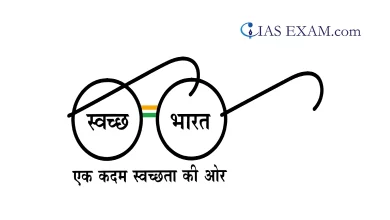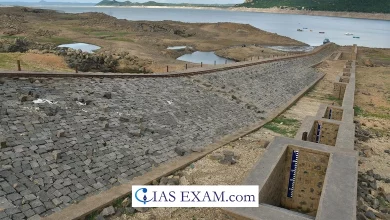AFSPA and the North East
[GS Paper 3 – Internal Security, GS Paper 2 – Govt. policies and interventions]
AFSPA has been fully or partially withdrawn from parts of three northeastern states: Assam Nagaland and Manipur.
The Center recently significantly reduced the footprint of the Armed Forces Special Powers Act (AFSPA) 1958 in the Northeast.
Key Highlights
- It was withdrawn entirely from 23 districts in Assam.
- It has been withdrawn partially from 7 districts in Nagaland, 6 districts in Manipur, and one district in Assam.
- The Centre has earlier extended the AFSPA in 3 districts of Arunachal Pradesh from 1st April to 30th September this year.
- The review of law and order in Tirap, Changlang, Londing, , falling under Namsai and Mahadevpur jurisdiction is taken by the AFSPA as per the centre’s notification.
AFSPA (Armed Forces Special Powers Act):
- The Armed Forces Special Powers Act, 1958 is an act of Parliament that allows armed forces the power to maintain the law and order in disturbed areas.
- A disturbed area is a region declared under Section 3 of the AFSPA. This came into the role when the Northeastern states of India were under the control of extreme insurgent groups threatening the internal security of India.
- Under this act, the army is permitted to shoot, search houses and destroy any property that is under the control of insurgent groups.
- This act is supplicated when there’s a case of insurgency, internal security challenges and territorial integrity is at risk.
- Under this act, armed forces can arrest anyone without a warrant who has committed or is a suspect to commit any offence.
Controversies associated with the Act:
- The law empowers security personnel, down to non-commissioned officers, to use force and shoot “even to the causing of death” if they are convinced that it is necessary to do so for the “maintenance of public order”.
- It also grants soldiers executive powers to enter premises, search, and arrest without a warrant.
- The exercise of these extraordinary powers by armed forces has often led to allegations of fake encounters and other human rights violations by security forces in disturbed areas while questioning the indefinite imposition of AFSPA in certain states, such as Nagaland and J&K.
Jeevan Reddy Committee on AFSPA
- In November 2004, the Central government appointed a five-member committee headed by Justice B P Jeevan Reddy to review the provisions of the act in the northeastern states.
- The committee recommended that:
- AFSPA should be repealed and appropriate provisions should be inserted in the Unlawful Activities (Prevention) Act, 1967.
- The Unlawful Activities Act should be modified to clearly specify the powers of the armed forces and paramilitary forces and Grievance cells should be set up in each district where the armed forces are deployed.
Way Forward
The status quo of the act is no longer the acceptable solution due to numerous human rights violation incidents that have occurred over the years. The AFSPA has become a symbol of oppression in the areas it has been enacted. Hence the government needs to address the affected people and reassure them of favorable action.





.png)



